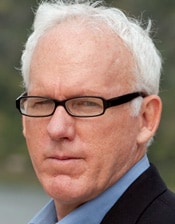
Thomas Molitor
The federal budget practice of “earmarking” – or “pork spending” as it is known colloquially – has exploded during the last 15 years.
Earmarks are line items in spending bills inserted by legislators for specific projects in their home states. Some infamous earmarks funded a $50 million indoor rain forest in Iowa and a $223 million “bridge to nowhere” in Alaska. Earmarks can provide recipients with federal grant money, contracts, loans, or other types of benefits.
The number of pork projects have increased from fewer than 1, 500 annually in the mid-1990s to 9,129 today, according to the Citizens Against Government Waste’s 2010 Congressional Pig Book, the group’s annual edition of pork-barrel spending. In 2010 pork brought in earmarks worth $16.5 billion.
Earmark projects are generally those that have not been requested by the president and have not been subject to expert review or competitive bidding. For example, if the government had $1 billion to spend on bioterrorism research, it might be earmarked to go to laboratories to the districts of important politicians, rather than to labs chosen by a panel of scientists. Earmarking has soared in most areas of the budget, including defense, education, housing, scientific research and transportation.
The main problem with earmarking is that most spending projects chosen by earmark are properly the responsibility of state and local governments or the private sector, not the federal government. The rise in earmarks is one manifestation of Congress’ growing intrusion into state affairs.
Consider these earmarks from the FY2008 omnibus appropriations bill:
- $1, 648, 850 for the private Shedd Aquarium in Chicago, which is also awash with corporate funding
- $787, 200 for “green design” changes at the Museum of Natural History in Minneapolis
- $492, 000 for the Rocky Flats Cold War Museum in Arvada, Colo.
All of these projects give taxpayer money to groups that should be funding their own activities from admissions fees and charitable contributions.
New Mexico pork
The Taxpayers for Common Sense – a Washington watchdog group – took a hard look at our pork requests from Senators Bingaman and Udall for next year.
Earlier this month, it released a list of ten dubious congressional earmark requests – out of thousands for 2011. That included a Udall earmark request for $188,000 “to develop a media resource center to promote the cultural richness of hot air balloons.”
Hey, I had a great time at the Albuquerque Balloon Fiesta this year. I even got up early with out-of-town guests and watched the morning patrol twice.
But Steve Ellis, vice president of Taxpayers for Common Sense, said “the request is a classic example – while arguably beneficial to the state of New Mexico it would go to, is not something for which taxpayers nationally should have to foot the bill.”
“Should the federal government be in the business of saying (through federal funding) how important balloons are? It seems like something the local community or others could do,” Ellis said.
Earmarks’ erosion of fiscal responsibility
Defenders of earmarks argue that they are no big deal since they represent just a small share of overall federal spending. The problem is that earmarking has contributed to the general erosion in fiscal responsibility in Washington.
Earmarks have exacerbated the parochial mindset of most members, who spend their time appeasing state and local interest groups rather than tackling issues of broad national concern. Many politicians complain about the soaring federal deficit (just last week Heinrich and Luján voted against the tax bill, saying it was too much debt for too little stimulus), yet their own staff members spend much of their time trying to secure earmarks in spending bills.
According to Taxpayers for Common Sense, Bingaman ranked 43rd in the Senate for earmarks in the bill, with 93 requests totaling nearly $108 million. Udall’s 90 earmark requests in the spending bill totaled about $109 million, according to the group.
Abolish earmarks
A first step toward eliminating earmarks is to further increase transparency in the congressional and agency spending processes. Under pressure from reformers, the government has set up a searchable public database of federal grants and contacts.
A second step is for citizens to use this website and other tools to research federal spending, and then to call our New Mexican members of Congress and tell them what programs should be cut.
Ultimately, earmarking should be abolished, and spending activities that are legitimate federal functions should be determined by a system of competitive bidding and expert review.
Of course, it will not be easy for our New Mexican members of Congress to reform the spending in their districts and on their favored programs. But New Mexican taxpayers fund all those other federal programs through federal income taxes, and we need to do a better job of convincing our members to cut unneeded programs and pass much leaner federal budgets.
Molitor is a regular columnist for this site. You can reach him at tgmolitor@comcast.net.
Molitor bio │ Archives │ Feed